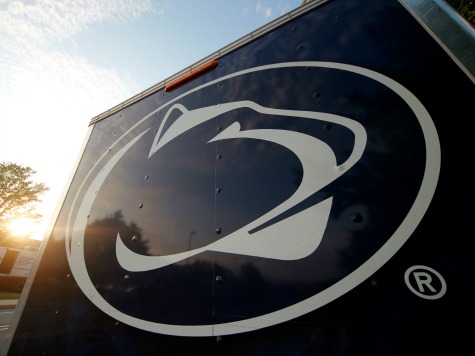
Employees of Pennsylvania State University are protesting a new wellness effort that requires them to provide detailed health information or pay penalties that can add up to $1,200 per year.
An online petition against the program that was initiated by Penn State art-history professor Brian Curran now has over 2,000 signatures.
The petition states:
Penn’s State’s new Health Care policies, which have been rolled out quietly in the middle of the summer, include an excessively invasive “Take Care of Your Health” plan that forces employees, by imposing a massive, $1200 a year surcharge, to submit to poorly and unprofessionally mass-organized blood tests and “biometric screenings.” Included in this mandate is an additional mandate, requiring all employees and their spouses/SSDPs, to fill out an incredibly invasive “Wellness Profile” that, if taken, immediately shares ALL of the person’s private medical information with WebMD, a third-party agency with a far from comforting record in the area of privacy.
The petition states that, soon after the initiative was launched, two new surcharges were announced:
One directed at employees who self-identify as smokers, the other to employees with spouses covered by the plan who are presently eligible for coverage by their own employer. Each and every one of these policies-raises serious questions related to patient privacy and medical ethics. But perhaps most importantly, their punitive character raises fundamental concerns regarding the relationship between Penn State as an employer and its employees, who might have expected better after enduring the challenges of the last two years. In light of these concerns, not to mention the almost complete lack of appropriate consultation with representative bodies across the university, we ask, indeed, we demand, that implementation be IMMEDIATELY stopped, or at the very least delayed, so that further consultation with the employees and their representatives can begin.
The Wall Street Journal reports that employer wellness programs have become quite common. A survey conducted last fall by the National Business Group on Health and Fidelity Investments found that 86 percent of employers were linking incentives to health-related activities this year, an increase from 57 percent in 2009. Health-risk assessments, biometric screenings, and participation in smoking cessation programs are the most common activities.
The WSJ report adds that Penn State’s program will charge its employees $100 per month, beginning in January, if they and their covered spouses do not complete the health questionnaire and certify that they will have a physical examination. Employees must also obtain biometric screenings, including blood-sugar and cholesterol tests, and body-mass index measurements in order to avoid the penalties.
A university spokeswoman said Penn State was “addressing cost concerns on multiple fronts, and the change is to empower employees to be more informed about their health status and health risks.”
The spokeswoman said that the university would only have access to aggregated, de-identified data, complying with federal health-privacy law.
However, Matthew Woessner, an associate professor of political science at Penn State, said he was concerned that the contractor the university employed might not be able to adequately protect the data.
According to the WSJ, Penn State’s president, Rodney Erickson, said the mandated program was aimed at reducing costs so that the university could keep the price of tuition down. Healthcare costs at the university are expected to increase 13 percent in 2013-14 from the prior year.
The petition also calls for the end of a plan to charge workers a $100 monthly fee to provide coverage to spouses if the latter are eligible for health insurance through their own employers, and for a $75 per month penalty on smokers.
ObamaCare has increased the size of incentives that employers can link to employees’ health data, but there is no federal cap on penalties tied to other related activities such as completing health questionnaires. From the WSJ:
The Penn State penalties are at the high end, according to polls of employers. A 2012 Mercer survey found that at large employers, the median maximum annual incentive–which could be a reward or a penalty–for filling out a health-risk assessment was $150. However, a handful of employers go much further, according to the National Business Group on Health survey–they yank workers’ coverage altogether if they don’t complete wellness requirements.
The Mercer survey also found that among large employers offering wellness programs, 42% used a financial reward as an incentive, and 15% had a financial penalty. Penn State has said that to structure its program as a reward rather than a penalty, it would have had to inflate employees’ premium charges and then offer a discount to workers, an approach it said was wasn’t “fiscally responsible.”
In addition to the “incredibly invasive character” of the Penn State health questionnaire, Curran also questioned the cost-effectiveness of employer wellness programs in general:
In a study commissioned by the federal government, Rand Corp. researchers said their analysis suggested that participating in a wellness program over five years was “associated with a trend toward lower health care costs and decreasing health care use,” but the effect wasn’t big enough overall to be statistically significant. The study also said some published research has shown cost decreases, but other evaluations haven’t.
Critics argue that the programs often cost more to implement than they can save. “The numbers don’t add up,” said Al Lewis, president of Disease Management Purchasing Consortium International, a group that includes employers and health insurers.

COMMENTS
Please let us know if you're having issues with commenting.